Blog Posts | April 3, 2017
Share ThisBenjamin Sweezy
Deputy Director of Digital and Information Strategy
The IMLS website, IMLS.gov, offers information about grants made by the agency to libraries and museums across the nation. Here's how to access our frequently requested data.
How IMLS grants support library services in each State?
The Grants to States program is the largest source of federal funding for library services in the U.S. Using a population-based formula, more than $150 million is distributed every year to State Library Administrative Agencies (SLAAs) located in each of the 50 states and the District of Columbia, as well as the territories and the Freely Associated States.
A state profile for every state describes the thousands of projects supported by these funds each year across the nation and includes a link to each state’s five-year plan. These plans summarize programs to strengthen the efficiency, reach and effectiveness of library services.
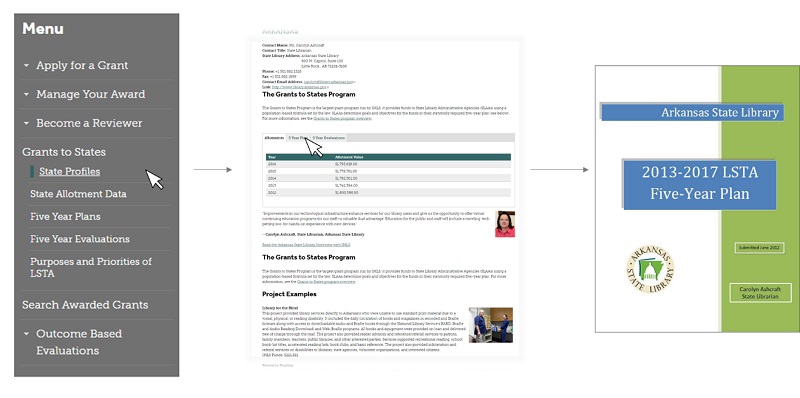
To view library funding for all states through federal Grants to States support, as well as the additional matching funds provided by state governments, see the FY 2016 State Allotment Table (PDF, 26KB):
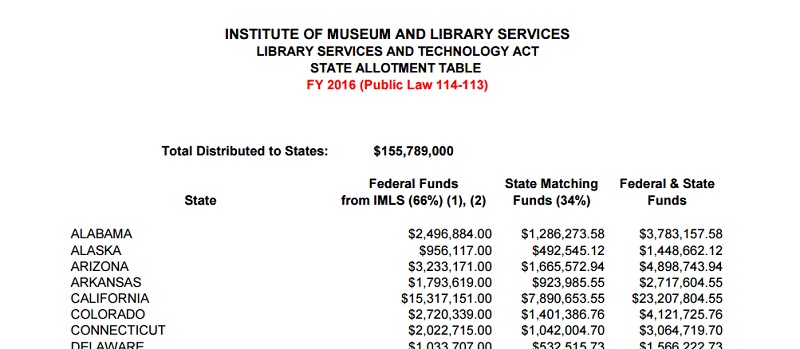
Where can I learn about projects supported by IMLS grants?
Using the Awarded Grants Search tool on the website, you can search, browse and read project descriptions for more than 16,000 grants awarded by IMLS to museums and libraries since 1996. For example, you can get paragraph descriptions for each of the dozens of awards to Arkansas just by selecting “AR” from the State drop-down box and pressing “Apply.”
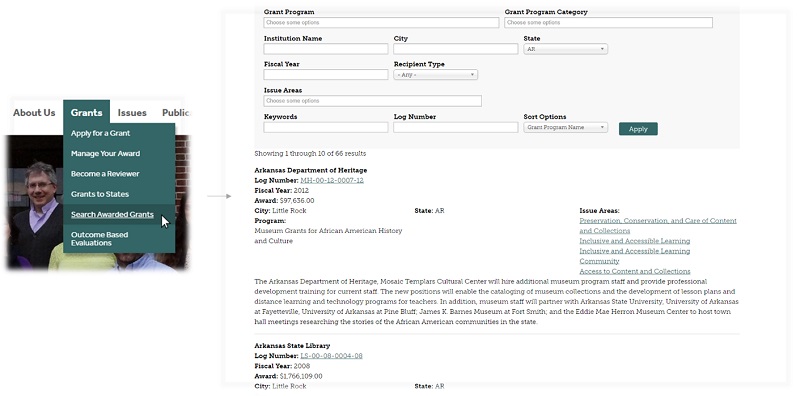
Where can I sort, filter, or download a list of IMLS grants by size, location, and type (library or museum)?
A great way to view and navigate data about a large number of grant awards is by using the Administrative Discretionary Grants dataset. For IMLS discretionary—or competitive—grant awards, the project description, dollar value, recipient, and other information from FY 1996 to FY 2014 is available in this dataset, which can be sorted, filtered and downloaded. Note: these awards do not include the more than 1,500 projects supported by the Grants to States program described above.
You can download all 13,000 awards or browse and sort them in this view. For example, you can sort by IMLS grant program name:
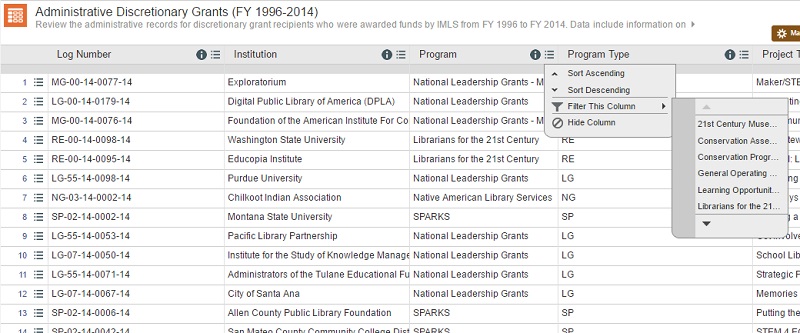
And filter by location or sort by award amount:
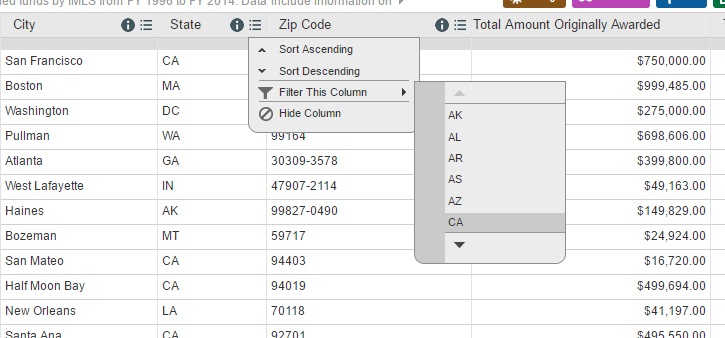
This is accessible through the menus on the website, or by bookmarking this link to the IMLS Data Catalog.
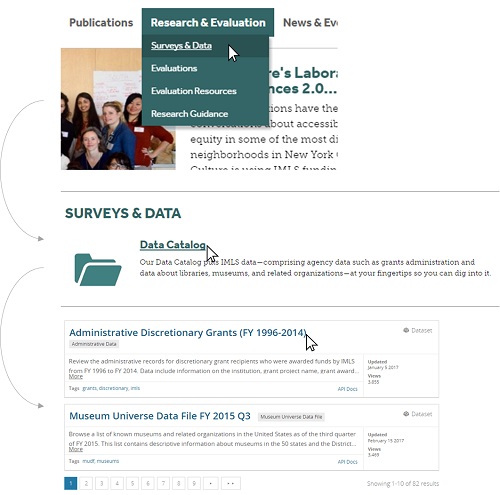
You can find a full description of the dataset, including a data dictionary defining each field, on the About This Dataset page. Go to this page by clicking “About,” then “Take me there!” on any dataset from the data catalog:
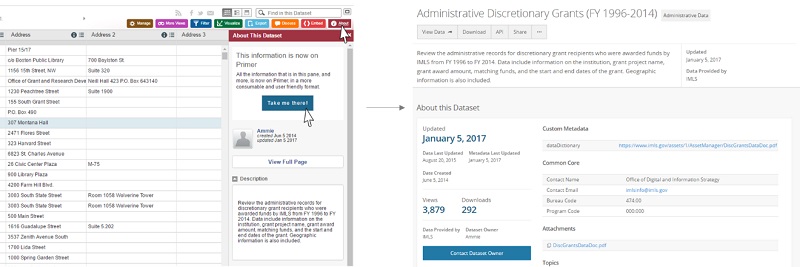
More Data on IMLS.gov
There are a number of additional data sources maintained by IMLS, available below:
Conducted annually since 1988, PLS is your definitive source on the state of public libraries in the United States. Explore the PLS data to find key information on over 9,000 public library systems and 17,000 public library outlets nationwide.
State Library Administrative Agency Survey (SLAA)
Collected annually since 1994 and biennially after 2010, the SLAA Survey is your definitive source on the state of State library administrative agencies in the United States. Explore the SLAA Survey data to find key information on the State library agencies in all 50 States and the District of Columbia.
Museum Universe Data File (MUDF)
The Museum Universe Data File is an evolving list of museums and related organizations in the United States. It includes basic information on aquariums, arboretums, botanical gardens, art museums, children’s museums, general museums, historic houses and sites, history museums, nature centers, natural history and anthropology museums, planetariums, science and technology centers, specialized museums, and zoos.
For the truly data-oriented visitor, the above datasets can be found in the IMLS Data Catalog. Please contact us at imlsinfo@imls.gov if you have any questions.
 About the Author
About the Author
Benjamin Sweezy
Deputy Director of Digital and Information Strategy
